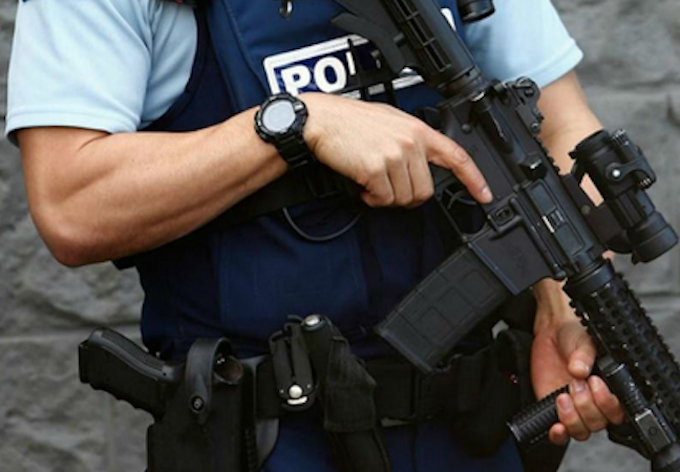
By Murray Horton
As I was having breakfast in my Christchurch suburban dining room on Monday morning, I heard a loud but indeterminate noise.
I actually thought it was a quake, but as there was no shaking, I assumed it came from the noisy construction site two doors away. So, I ignored it and carried on reading the newspaper over breakfast.
I then had a sense that somebody was nearby. Upon looking up I was surprised (to put it very mildly) to see two cops, with rifles at the ready, peering through the windows on the back door.
I thought: “This is exciting. Why spend good money to see Muru [a new movie based on the 2007 Tūhoe police raids] when you can get it delivered to your doorstep, free of charge” (but these cops didn’t have the ninja uniforms as seen in the movie).
I opened the door. Two cops with rifles rapidly became four cops with rifles facing me (the next door neighbour later told me he saw three cop cars in the street). It’s worth noting that although they all had a gun, none of them was wearing a mask.
“Can I help you?,” I asked. The one in charge said they were looking for Mr So and So. I replied that I’d never heard of him and they had the wrong address.
But wait, there’s more. The cop then said: “Mr So and So is a gang member. He was bailed to this address, he is under curfew at this address, and now he’s wanted.”
Don’t know any gang members
I reiterated that I’d never heard of this fellow, let alone provided him with a bail address (I don’t know any gang members. Well, not since I worked at the Railways decades ago).
I said that Mr Gangster had pulled a shrewdy on the judge, and voluntarily showed the cop written proof of my ID and ownership of the property (the power bill was the closest document to hand). I told them that I had owned and occupied this house for 40 years and had never heard of the fellow throughout that time.
It was all very chatty and polite. The cops could obviously see that their wanted man had pulled a swifty, plus I am a property-owning old Pākehā. They didn’t point their guns at me, nor did they ask to come inside (and I didn’t invite them). They took my word that my sleeping wife was the only other person in the house.
I asked if they were responsible for the loud noise I’d heard, and they said that was them pounding on the front door (plus the bedroom window, apparently). I told them that there also been pounding on the front door and bedroom window after dark on the previous Friday night, which I’d chosen to ignore (assuming it to be somebody at the wrong address).
The cop said it was probably police doing a bail curfew check.
The lead cop wrote a statement in his notebook and asked me to sign it, saying that I’d owned and occupied the place for 40 years, did not know the fellow they were seeking, and had not given him permission to use it as a bail address. Then they left.
Throughout the decades I’ve had plenty of cops on various doorsteps. But never with weapons, let alone weapons drawn. The only times I’ve been confronted by men in uniforms with rifles have been in places like the Philippines and Belfast.
Here’s the punchline. One of the cops said: “As I was coming up the drive, I was thinking, ‘this doesn’t look like a gang house’.” When it comes time to sell here, I must remember to instruct the real estate agent to highlight that as its unique selling point.
A flying start to the week.
The police apology
Ten days after the police bail incident without an expected apology, Murray Horton wrote a letter of complaint. This was the police reply on 11 August 2022:
Dear Mr and Mrs Horton,
I write in response to your correspondence dated 10 August 2022 and our telephone conversation this morning.
The role of checking the veracity of bail addresses primarily sits with Police. As you can appreciate it is simply not possible to check every bail address for every person released on bail. Therefore we prioritise bail address checking based on a range of factors including seriousness of offending, proximity to victims/witnesses, and so on. In the present case the defendant was charged with a relatively minor regulatory offence and therefore the address provided was not checked. I do not dispute that the defendant in the present case was unknown to you both. I can reassure you both that a file note now shows that your address is not to be accepted as a bail address for the defendant.
As you point out in your letter, and as we discussed, there were sound reasons why attending staff were armed. The defendant was arrested last week in possession of a loaded firearm. I accept that being confronted by armed police whilst reading a newspaper in your dining room was alarming. I appreciate your acknowledgement that attending staff were professional in handling their firearms, but I also accept their professionalism does necessarily diminish your alarm. Police remain a routinely unarmed service, but have ready access to firearms and other tactical options if they are required. Unfortunately this means that innocent members of the public are sometimes exposed to armed police. It is a fine balance between ensuring the community are safe, and ensuring the community feel safe.
I accept that the robust knocking on doors and windows was also alarming for you both. Clear and concise communication with potential occupants is an appropriate approach. However, when we are at the wrong address, or the right address for the wrong reason, it will appear to be aggressive and unnecessary.
I agree that a simple explanation and apology at the time would have been appropriate, and I would expect that from my staff. I apologise for their rudeness, and I apologise for the alarm and inconvenience caused to you both.
If you have any questions or wish to discuss the matter further please contact me directly.
Yours sincerely,
Inspector Glenn Nalder
New Zealand Police
Murray Horton is a political activist, advocate and researcher. He is organiser of the Campaign Against Foreign Control of Aotearoa (Cafca) and he has been an advocate of a range of progressive causes for the past five decades. Horton occasionally contributes articles for Asia Pacific Report.




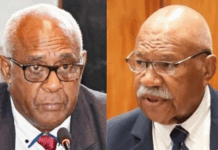
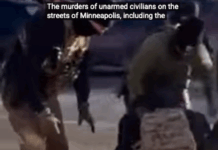


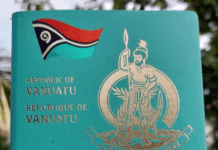




















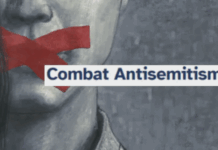
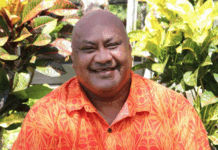















Well done Murray for keeping such a calm cool patient demeanor in the face of militant police harrassment. It is depressing to see our NZ police force having to arm themselves with guns to deal with increasing numbers of dangerous people with weapons.
We have been indoctrinated with the American culture of guns and violence for the last 30 years as part of the Right wing
Neo-liberal free market rules economics. This allows enormous amounts of crime, violence and murder ‘as entertainment’ on TV, movie, computer, every kid’s cellphone screen and social media feed.
Most people seem unaware of the cultural programming as a major cause of increasing violence in real life. NZ is becoming almost as sick, fearful and violent as the US as too many people copy their gun culture while gun sales rake in great profits.
The last few years of thuggery has grown worse with attacks on police and so of course they must be armed to protect themselves. Thus we now see the brazen carrying of guns in most NZ news items as the ‘new normal’.
Thankfully the PM has tried to curb this after the Mosque massacre by stricter gun laws but we need a re-vivified Peace movement to get the gun culture off our screens, and out of our Real Life communities.
Comments are closed.